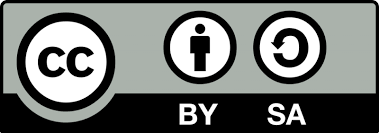Models of pedagogical coach and their incidence in coaching proposals for basic education in Mexico
DOI:
https://doi.org/10.23824/ase.v0i34.692Downloads
Abstract
This text is about different models of educational coaching that have had a presence in the history of basic education in Mexico, according to constituent interests of the knowledge of Habermas as criteria of classification. The first content is the difference between coaching with other similar terms, such as mentoring, training or management, then the characteristics of this coaching are pointed out and a notion about it is approached. Next, different models of advice are presented according to the interests considered. These models are analyzed according to the conceptions of knowledge, teaching, learning and educational change that they propose. Finally, some comments are included about aspects to consider improving coaching in the Mexican context what was discussed.
References
Aguilar, Elena (2013). The Art of Coaching. Effective Strategies for School Transformation. Estados Unidos de Norteamérica: Jossey-Bass.
Bonilla, Oralia (S. d.). La asesoría a la escuela. México: SEP.
Bonilla, Oralia; Guerrero, Cuauhtémoc; Gutiérrez, Héctor; Jiménez, Pedro y Santillán, Marco (2011). Función de alto riesgo. La tarea pedagógica de la supervisión escolar. México: Ediciones SM.
Calvo Pontón, Beatriz (2007). Los asesores técnico pedagógicos y el fortalecimiento de las escuelas de educación básica. México: Consejo Mexicano de Investigación Educativa. Recuperado de: http://cort.as/-MBzK.
Domingo Segovia, Jesús (2010). Comprender y direccionar las prácticas de asesoría. Revista Iberoamericana de Educación (54), pp. 65-83. Recuperado de: https://rieoei.org/historico/documentos/rie54a03.pdf
Gobierno de México - Presidencia de la República (2013). Ley General del Servicio Profesional Docente. México: Presidencia de la República.
Gobierno de México - Dirección General de Educación Indígena (DGEI) (2015). Perfil de desempeño del asesor técnico y el Tutor para la educación inclusiva e indígena. México: SEP.
Gobierno de México - Presidencia de la República (2019a). Ley General del Sistema para la Carrera de las Maestras y los Maestros. México: Presidencia de la República.
Gobierno de México - Secretaría de Educación Pública (SEP) (2019b). Lineamientos generales del Sistema de Asesoría y Acompañamiento a las Escuelas en la Educación Básica. México: SEP.
Grundy, S. (1998). Producto o praxis del curriculum. Madrid: Morata.
Hernández Rivero, Víctor (2004). Rasgos de configuración de los sistemas de apoyo externo a los centros educativos. En: Jesús Domingo Segovia (coord.). Asesoramiento al centro educativo. México: SEP-Octaedro, pp. 167-182.
Hernández Rojas, Gerardo (2008). Paradigmas en psicología de la educación. México: Paidós Educador.
Juárez Pineda, Erick (2017, 13 de agosto). Rechaza INEE instrumentos de evaluación para asesores técnico-pedagógicos. En Educación Futura. Recuperado de: http://www.educacionfutura.org/rechaza-inee-instrumentos-de-evaluacion-para-asesores-tecnico-pedagogicos/
Knight, Jim (2007). Instructional coaching. A partnership approach to improving instruction. Estados Unidos de Norteamérica: Corwin Publishers.
Latorre, Antonio (2003). La investigación-acción. Conocer y cambiar la práctica educativa. España: Gráo.
McLaren, Peter (2005). La vida en las escuelas. México: Siglo XXI.
Nieto Cano, José Miguel (2004). Modelos de asesoramiento a organizaciones educativas. En: Jesús Domingo Segovia (coord.). Asesoramiento al centro educativo. México: SEP-Octaedro, pp. 147-166.
O’Flaherty, Craig (2003). Coaching versus Mentoring versus Leading versus Managing. Centre for coaching. Recuperado de: https://www.centreforcoaching.co.za/images/stories/o_vs_vs.pdf
Osses, Alejandra y González, Clemencia (2010). ¿Qué se sabe sobre asistencia técnica educativa en el mundo? El contexto internacional. En: Cristián Bellei, Alejandra Osses, y Juan Pablo Valenzuela (coord.). Asistencia Técnica Educativa: de la intuición a la evidencia. Chile: Ocho Libros Editores, pp. 81-128.
Perrenoud, Philipe (2004). Desarrollar la práctica reflexiva en el oficio de enseñar. España: Graó.
Planchy, K. (2018). Managing as a Coach. Estados Unidos de Norteamérica: University of California.
Profelandia (2014, 6 de marzo). Asesores Técnicos Pedagógicos deberán presentar examen: SEP. Profelandia. Recuperado de: http://cort.as/-MCaP.
Rodríguez Romero, María Mar (2004). Asesoramiento en educación. Identidad y construcción de una práctica controvertida. En: Jesús Domingo Segovia (coord.). Asesoramiento al centro educativo. México: SEP-Octaedro, pp. 69-88.
Schön, Donald (1998). El profesional reflexivo. Cómo piensan los profesionales cuando actúan. España: Paidós.
Silva Peña, Ilich; Salgado Labra, Isabel y Ana Sandoval (2013). Modelo de asesoría a escuelas centrado en el acompañamiento docente. Cadernos de Pesquisa (43), pp. 240-255.
St. Clair, Sherry (2019). Coaching Redefined. A guide to leading meaningful instructional growth. Estados Unidos de Norteamérica: International Center for Leadership in Education.
Villareal, Ana Luisa, Reyes, Blanca Emilia y Solís, Alicia (2015). Asesoramiento pedagógico en el aula. México: Pearson Educación.
How to Cite
Issue
Section
Published
Keywords:
coaching school, technical assistance at school, teacher development, basic education, educational modelsLicense

Attribution Share-Alike CC BY-SA
Those authors who have publications with this magazine, accept the following terms:
A) The authors will retain their copyrights, which will be simultaneously subject to the Creative Commons Attribution License that allows others to re-mix, modify and develop on your work even for commercial purposes, provided they credit you And to license their new works under the same terms.
B) The authors will retain the rights of exploitation of the intellectual property of this work, and especially the rights of reproduction, distribution, transformation in any of its modalities and public communication of said work, which will be simultaneously subject to the License Of recognition of Creative Commons that allows others to re-mix, modify and develop on your work even for commercial purposes, provided they credit you and license your new works under the same terms.
Creative Commons Attribution-ShareAlike 4.0 International Public License

